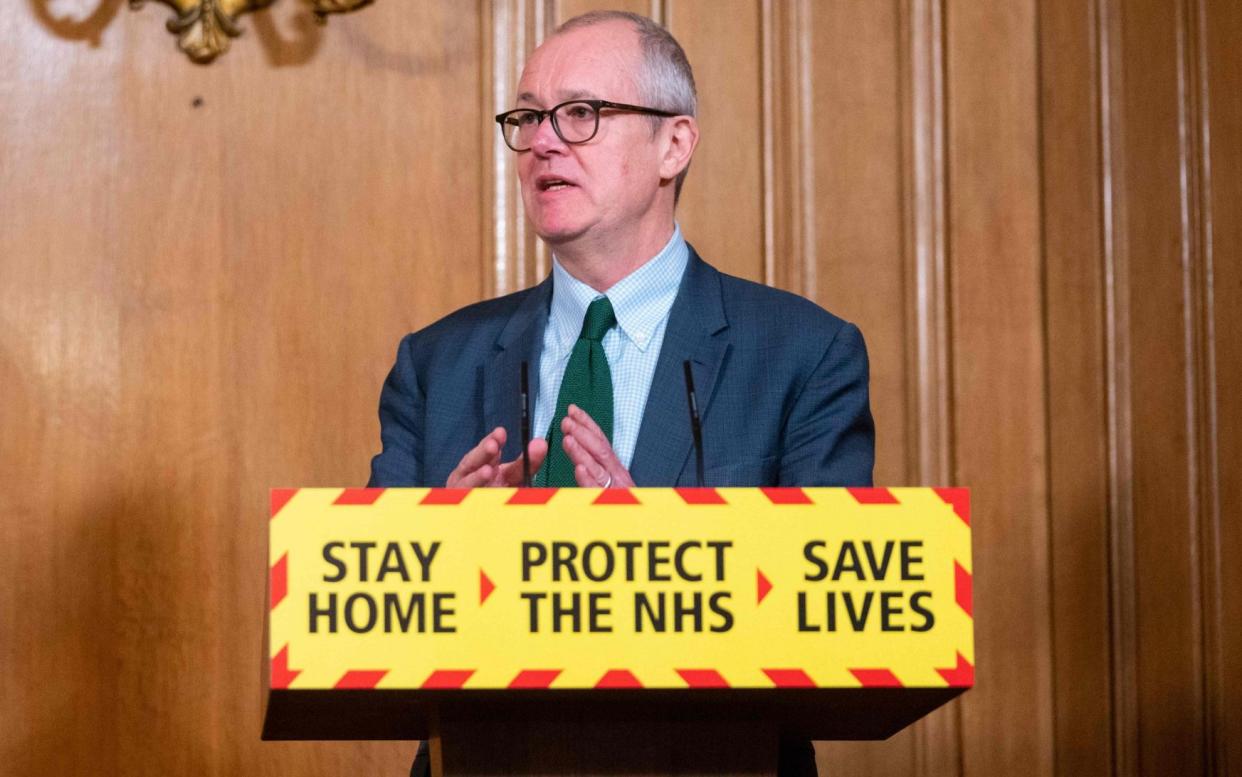Herd immunity 'needs at least 70 per cent of population to be protected from Covid'


At least 70 per cent of the population would need to be protected from coronavirus for herd immunity to be achieved, Sir Patrick Vallance has said, raising fears that an early release from Covid restrictions is unlikely.
Government sources have said ministers are working towards an Easter easing of measures despite having initially suggested that they would be reviewed in mid-February if the target of vaccinating all over-70s is reached.
On Wednesday, Sir Patrick suggested it may take even longer to reach levels that would stop virus transmission, indicating that some 46 million people would need immunity either through vaccination or a prior infection.
The Government's chief scientific adviser said one in eight people in Britain has previously had the virus – which means around 39 million, and probably more, would still require the jab because many of the vaccinated would have already had Covid and so would count twice.
Only the first four groups of the joint committee on vaccination and immunisation (JCVI) priority list will be vaccinated by mid-February, amounting to around 15 million people – well below herd immunity levels.
Figures show that, at the current rates of vaccine deployment – around 1.8 million per week – herd immunity would not be achieved until the summer at the earliest.
Boris Johnson is under pressure from some of his own backbenchers to commit to beginning to ease the restrictions by the end of the first week in March, but Sir Patrick suggested it will take longer and told Sky News it would need "70 per cent or more" coverage.
"I don't see a release of these measures being a sensible thing to do in the short term," he said. "There are some people who want to perpetually release things sooner, perpetually don't want to go into lockdown, arguing that nothing is going to happen, there isn't going to be a second wave, another increase. This causes quite a lot of confusion in the public debate.
"It's worth remembering the definition of insanity by Einstein, which is doing the same thing over and over again and expecting a different outcome. The lesson is that every time you release it too quickly you get that upswing. You can see that right across the world."
The JCVI has previously said that a vaccine of 70 per cent efficacy – similar to that of the Oxford jab – would require 70 per cent coverage in order to negate the need for social distancing. Some experts believe the Covid variant has now pushed that to 80 per cent.
MPs who expressed alarm at the legislation governing the current lockdown being in place until March 31 were assured at the time that it was just a precaution and that restrictions were expected to begin falling away before then.
But Sir Patrick said: "We're still at really, really high levels. One in 55. The prospect of spread is still high. This is absolutely not the time to talk about relaxing measures. And the vaccine rollout is critical, we've got to get on top of that.
"The advice at the moment is that vaccines are not going to do the heavy lifting for us at the moment. This is, I'm afraid, about the restrictive measures... and carrying on with those."

